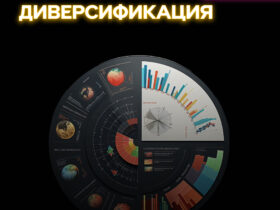Artificial Intelligence in the World of Finance: Advanced Technology or Risk Zone?

What do you think of when it comes to artificial intelligence (AI)? Do sci-fi images of super-computers and robots immediately come to mind? However, AI has long crossed the boundaries of science fiction and has become part of our everyday life, also in the field of finance. But how does it help in the field of finance and is it worth using it or is it better to abstain? After all, it is unknown what we are dealing with when we trust our data to artificial intelligence.
You may have already encountered artificial intelligence in finance if you use financial accounting applications. Some apps can automatically categorize your spending, provide budget reports, and even predict future expenses. He can also become your personal financial advisor. Modern financial assistants constantly monitor and analyze your financial transactions and accounts and, over time, begin to suggest savings and investment strategies, as well as make specific recommendations to achieve your financial goals. By learning and analyzing your users' spending, it begins to recognize habits and preferences based on your financial transactions, and uses this information to help you make better financial decisions. Examples of such apps include Wally, Plum, OliviaAI, Cleo, MintZip, Wizely, and Charlie (now Chime). At the moment we can only evaluate Wally, Plum, OliviaAI, since the last 4 applications are not available for residents of Estonia. However, the possible options provided to us synchronize perfectly with local banks and eliminate the need for manually entering transactions, which greatly simplifies budgeting.
Despite the many benefits, there are also dangers among the potential benefits of AI in finance. One of these pitfalls is the possibility of incentivizing increased spending. AI can determine that certain goods or services are a priority for you and encourage you to spend more money on them or by-products. The risk especially increases if the application has an agreement with the company to advertise certain products. For example, in the case of a casino or a hobby, people may succumb to a moment of weakness and spend most of their capital on things that they do not really need, because the AI has provided them with a large number of advertisements for products based on their interests and hobbies, which is why they have been misled or misled to no avail. This, of course, can lead to excess spending and debt, especially for users who are not aware of how the system works and how the AI is using their financial data. Understanding how AI-based systems work and how data is used is a very important aspect, because in this case the issue of data confidentiality arises, as this raises concerns about privacy. Strict data security policies and transparency from companies providing AI-powered financial services are needed. Also, it is important to understand, no matter how useful it is in financial matters, it is not always able to replace a person, because artificial intelligence can also make mistakes and misinterpret information. Since some companies are already using AI as an assistant in assessing the creditworthiness of customers, such a system can lead to errors in making decisions about issuing or refusing a loan, since it does not have the ability to analyze the intuitive and moral aspects that guide people in everyday life. Otherwise, AI may incorrectly assess a person’s creditworthiness and push them to take out a loan, despite the high debt burden relative to the individual’s income, which will lead to declaring themselves bankrupt and the inability to pay off their debts.
Despite these challenges and concerns, regulation has an important role to play in ensuring the safe and responsible use of AI in finance. The UK's Financial Conduct Authority (FCA) is already working to create a regulatory framework that will ensure safety and protect the interests of consumers. Estonia is also not on the sidelines in its regulatory efforts, as AI-powered products and services have captured a significant portion of the market in education, manufacturing, personal finance and data processing. For example, the European Union is currently working on regulation update artificial intelligence in the field of video surveillance, gambling and data confidentiality, as well as the use of such an assistant in the activities of large enterprises, since at the moment only in Estonia about 20% of large companies use artificial intelligence in their activities according to Äripaev.
Thus, artificial intelligence is gradually simplifying our lives. However, this rapid growth leads to the need for strict regulation, ensuring data privacy and consumer protection, understanding the principles of AI-based systems and their data processing, as well as rational thinking, since not all information advised by artificial intelligence is useful or relevant. A great example of this problem was when a lawyer turned to artificial intelligence to obtain real estate court decisions for analysis. He provided the AI with a request, expecting real court decisions. However, AI, using its algorithms and data, began to generate fictitious court cases that it presented as real. The lawyer, without knowing this, used this data for his research. Therefore, any information provided by artificial intelligence should be carefully checked and it is especially important to take into account the risks, since such a system can both lead to an improvement in the quality of life and put a spoke in the wheels if the risks and shortcomings of AI-based applications and services are ignored.
As for investing in companies developing AI solutions for their products, this could also be a promising area. Many of them are already publicly traded, providing investors with the opportunity to raise capital through future AI-based products. Such companies include Adobe (ADBE), Alphabet (GOOGL), Amazon (AMZN), Baidu (BIDU), C3 AI (AI), IBM (IBM), Micron Technology (MU), Microsoft (MSFT), Nvidia (NVDA ), Oracle (ORCL), Palantir (PLTR), Tesla (TSLA). All of these companies have already implemented artificial intelligence in their systems or are developing products. These companies may be quite promising, since working with artificial intelligence is a relatively new feature of companies and it will be interesting to see how companies will be able to implement or modify AI for their own purposes, since its capabilities have not yet been fully explored. Of course, it is worth checking how these companies use artificial intelligence and to what extent, and it is also worth always conducting your own analysis of companies before investing and taking into account the risks, since your investment is your responsibility and you act in the markets at your own peril and risk.
In conclusion, we can say that the potential of artificial intelligence has not yet been fully realized and people, as well as companies, continue to experiment, introducing AI into their systems and exploring its capabilities, while simultaneously training and improving it within the framework of their needs. Naturally, in the case of using AI and working with it, it is worth taking into account the pitfalls, imperfections of the system, the principle of operation and the risks associated with it. If you take these aspects into account and check the information that AI provides, then such an assistant will be useful, effective and help make life a little easier.









leave a comment